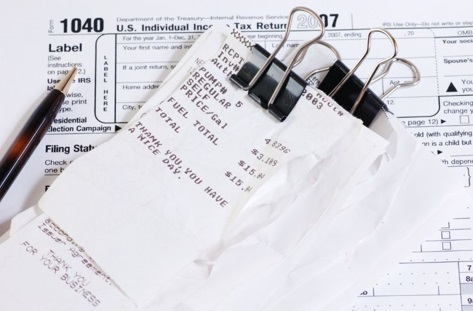Imagine this…

Scenario: Sarah is a self-employed graphic designer who operates her own small design studio. She wants to understand the tax implications of her business activities and maximize her deductions to reduce her tax liability.
Tax Implications and Deductions in Sarah’s Situation:
- Business Structure Choice: Sarah started her design business as a sole proprietorship because it was the simplest structure. The tax implication of this choice is that her business income is reported on her personal tax return. While this simplifies taxation, it also means that she is personally liable for any business debts.
- Business Expenses: Sarah has various business expenses, including rent for her office space, design software subscriptions, advertising costs, and office supplies. These expenses are tax-deductible, which means they reduce her taxable income. She keeps meticulous records of these expenses throughout the year.
- Home Office Deduction: Sarah uses a portion of her home exclusively for her business. She learns about the home office deduction, which allows her to deduct a portion of her rent, utilities, and other home-related expenses based on the square footage of her home office relative to her total living space.
- Client Meetings and Travel: Sarah occasionally meets clients at coffee shops or travels to meet them in different cities. She realizes that she can deduct the cost of meals, travel expenses, and mileage for these business-related trips, which helps reduce her taxable income.
- Health Insurance Deduction: Sarah purchases her own health insurance as a self-employed individual. She learns that she can deduct her health insurance premiums as a business expense, reducing her taxable income.
- Quarterly Estimated Taxes: Sarah is responsible for paying quarterly estimated taxes since she doesn’t have taxes withheld from a regular paycheck. She calculates her estimated tax payments based on her expected income and takes into account her deductions to avoid underpayment penalties.
- Retirement Contributions: Sarah decides to open a Simplified Employee Pension Individual Retirement Account (SEP IRA) for her business. Contributions to this retirement account are tax-deductible, which helps her save for retirement while reducing her taxable income.
- Record-Keeping: Throughout the year, Sarah keeps detailed records of her income and expenses using accounting software. This organized record-keeping ensures that she doesn’t miss any deductible expenses when it’s time to file her taxes.
At the end of the year, Sarah works with a tax professional to prepare her tax return. By carefully considering the tax implications of her business decisions and taking advantage of available deductions, she effectively reduces her taxable income, which, in turn, lowers her tax liability. This allows her to keep more of her hard-earned money and maintain a healthy financial position for her business.
What is Tax Implications and Deductions?

Tax implications and deductions are important concepts related to income taxation. They deal with the financial consequences and opportunities that arise from the tax laws and regulations in a particular jurisdiction. Here’s a breakdown of these terms:
- Tax Implications: Tax implications refer to the effects that taxation has on an individual’s or entity’s financial situation. These effects can be both positive and negative and are typically associated with various financial transactions, investments, income sources, and expenses. Tax implications can include:
- Tax Liability: The amount of tax an individual or entity owes to the government based on their taxable income, deductions, and applicable tax rates.
- Tax Consequences of Financial Decisions: Any financial decision, such as buying or selling an asset, starting a business, or making an investment, can have tax implications. For example, selling a property may result in capital gains tax.
- Choice of Business Structure: The structure of a business, whether it’s a sole proprietorship, partnership, corporation, or other entity, can have significant tax implications in terms of income reporting and liability.
- Tax Credits: Tax implications can also include tax credits, which can reduce the amount of tax owed. For instance, a government may offer tax credits for energy-efficient home improvements.
- Timing of Income and Expenses: When income is received or when expenses are incurred can impact tax liability. For example, deferring income to a future year or accelerating deductions can affect the overall tax burden. Understanding tax implications is essential for individuals and businesses to make informed financial decisions and minimize their tax liability within the bounds of the law.
- Deductions: Deductions, also known as tax deductions or tax write-offs, are expenses or allowances that reduce a person’s or entity’s taxable income. Deductions are permitted by tax authorities as a way to reflect the taxpayer’s actual financial situation more accurately. By reducing taxable income, deductions lower the tax liability, resulting in potentially lower taxes owed. Common deductions include:
- Standard Deduction: Many taxpayers have the option to claim a standard deduction, a predetermined amount set by the tax authority, which varies depending on filing status. It simplifies the process of itemizing deductions.
- Itemized Deductions: Taxpayers may choose to itemize deductions instead of taking the standard deduction. Itemized deductions include expenses such as mortgage interest, property taxes, medical expenses, charitable contributions, and certain job-related expenses.
- Business Expenses: Businesses can deduct various expenses necessary for their operations, including rent, utilities, employee salaries, office supplies, and depreciation of assets.
- Investment-Related Deductions: Investors may deduct expenses related to investment activities, such as investment advisory fees or certain losses on investments.
- Education Expenses: Some educational expenses, such as tuition and student loan interest, may be deductible.
- Medical Expenses: Qualifying medical expenses that exceed a certain percentage of adjusted gross income may be deductible. It’s important to note that tax laws and allowable deductions vary by jurisdiction and can change over time. Therefore, taxpayers should stay informed about the specific deductions available to them and consider consulting tax professionals for guidance on optimizing their tax situation.
In summary, tax implications encompass the financial consequences of taxation on an individual’s or entity’s financial decisions and overall financial health. Deductions, on the other hand, are specific expenses or allowances that reduce taxable income, thereby potentially lowering the amount of tax owed. Understanding tax implications and taking advantage of available deductions can help taxpayers manage their tax liability more effectively.
Why is it important?

As a first-time property buyer, it is important to understand the tax implications and potential deductions associated with owning a rental property. The income generated from rental properties is subject to taxation, but there are also several deductions that can help reduce the tax liability.
One common deduction for rental properties is depreciation, which is the decrease in value of the property over time due to wear and tear. This deduction can help offset the rental income and lower the amount of taxes owed.
Other deductions may include expenses related to property maintenance, repairs, and improvements, as well as property management fees and advertising costs to find new tenants. It’s important to keep detailed records and receipts for all expenses related to the rental property to accurately report deductions and minimize tax liability.
It’s also important to consider the local tax laws and regulations, as they can vary by state and municipality. Some areas may have higher property tax rates or specific regulations for rental properties, such as registration requirements or occupancy limits.
Consulting with a tax professional who specializes in rental properties can help ensure that all tax implications and deductions are understood and properly accounted for.
Understanding the tax implications and deductions available to you can significantly increase your financial well-being by legally minimizing your tax burden and keeping more money in your pocket. Contact us!
Follow us!
For more details you may also follow our Facebook, Instagram, and YouTube!




